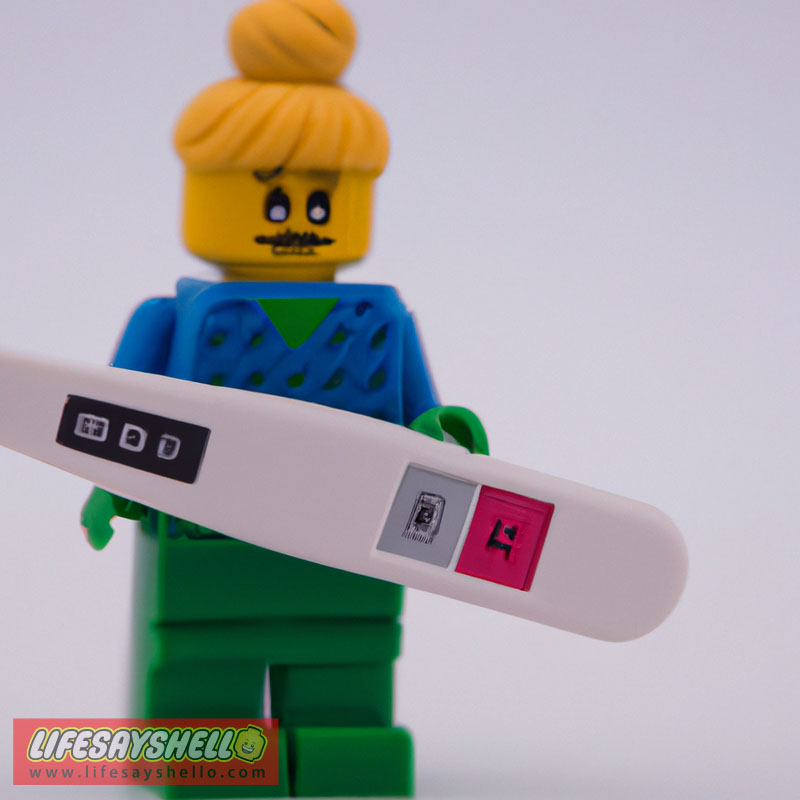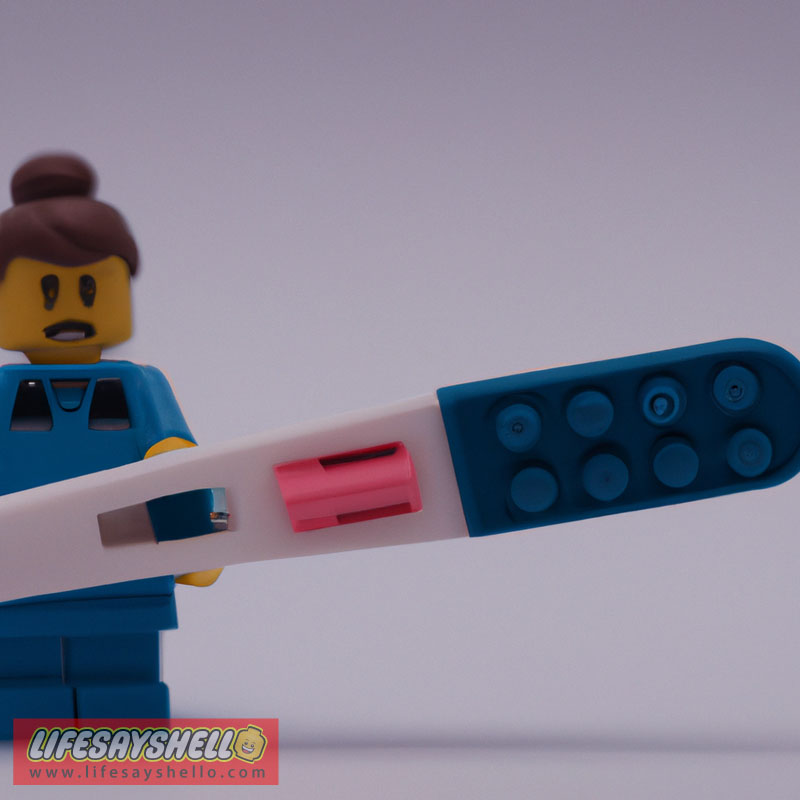Do Cheap Pregnancy Tests Really Work? The Surprising Accuracy of Cheap Pregnancy Tests

Finding out you're pregnant can be an exciting and emotional time. But before you get swept up in the moment, you'll want confirmation that you really have a bun in the oven. Pregnancy tests offer a straightforward way to find out if you're expecting. But with tests ranging in price from 1 to 20 or more, you may wonder if those cheap pregnancy test strips you found at the dollar store will really give you an accurate result.
The short answer is yes - cheap pregnancy tests are just as accurate as more expensive options if used properly. Read on to learn why you don't need to splurge for peace of mind. We'll cover the key factors that impact accuracy for all pregnancy tests, explain the few key differences between cheap and expensive tests, and provide tips for getting the most accurate reading regardless of which test you choose.
How Accurate Are Home Pregnancy Tests?
First, let's look at how accurate home pregnancy tests are in general. Whether you choose a name brand digital test or the cheapest paper strip style, all modern home pregnancy tests boast an accuracy of 97% to 99% when used correctly.
This high accuracy relies on a few key factors:
Following the instructions properly - This includes steps like not reading the results after the specified time frame, avoiding excess liquids before testing, and more.
Taking the test at the right time - HCG levels need to be high enough to trigger a positive result. Taking it too early leads to more false negatives.
Proper sample collection - Collecting enough urine and dipping or holding the absorbent tip in the stream for the specified time.
As long as you follow the instructions precisely and take the test at the right point in your cycle, even the cheapest test will give you an accurate read. The technology and sensitivity is virtually identical across most tests on the market today.

What Impacts Accuracy?
Two key factors affect the accuracy of home pregnancy tests - the sensitivity of the test and the timing.
Sensitivity refers to the amount of human chorionic gonadotropin (hCG) needed to trigger a positive result. hCG is the pregnancy hormone measured by home tests. All tests sold today have a published sensitivity of at least 20 mIU/mL (milliinternational units per milliliter).
The earlier you take a pregnancy test, the lower the hCG levels in your urine. Very early in pregnancy, even a sensitive test may not detect these low levels. As pregnancy progresses, hCG levels rise rapidly, increasing the odds of an accurate positive result.
Timing is crucial. Even the most sensitive test can't detect a pregnancy before hCG is present. Most experts recommend waiting until at least the first day of your expected period before testing. This allows enough time for hCG levels to rise if conception has occurred. Testing too early means you may get a false negative.
If you don't want to wait until you've missed your period, look for a test advertised as "early result." These tests can detect lower hCG levels and can be taken up to 5 days before a missed period.
Are Expensive Pregnancy Tests More Accurate?
With cheap pregnancy test strips costing 1 or less a piece, and name brands running 10 to $20 for just one test, you may wonder if the extra cost translates to better accuracy.
The short answer is no - expensive tests are not inherently more accurate than affordable options. As long as you follow the instructions, the accuracy of any modern home pregnancy test is 97% to 99%.
Name brand tests are essentially using the same antibody technology as cheaper test strips. They simply package it up in nicer casing and market extra features.
Where expensive pregnancy tests do differ is in offering additional conveniences that may appeal to some users:
Digital/spell-out readout - No interpreting lines, the words "Pregnant" or "Not Pregnant" appear for clear results.
Earlier detection - Higher sensitivity to detect pregnancy sooner. Look for tests that work up to 5 days before a missed period.
Streamlined design - One-step operation, ergonomic shape, and easy-to-read display.
Extra features - Some digital tests offer options like conception date estimates and weeks counter.
While these features are nice, they don't impact the core accuracy and technology of the test. And some inexpensive test strip brands now offer earlier detection and streamlined shapes as well.
Bottom line - while expensive tests provide a more premium user experience, they don't offer higher accuracy. Cheap pregnancy tests use the same mechanism and can deliver results that are just as correct.
Tips for Maximizing Accuracy With Cheap Pregnancy Tests
To get the most accurate reading from any home pregnancy test, follow these guidelines:
Take the test at the right time - Wait to test until at least the first day of your expected period, when hCG levels will be highest if conception occurred. Testing earlier risks a false negative result.
Follow all test instructions - Read the enclosed pamphlet thoroughly and follow all directions for collecting your sample, activating the test, and reading results.
Collect your urine properly - Collect your urine in a clean cup and dip or hold the absorbent testing strip in the stream for the specified amount of time. This ensures you collect enough hCG for an accurate read.
Avoid excess liquids - Don't drink lots of fluids right before taking the test as this can dilute hCG levels in your urine sample. Concentrated morning urine is best as hCG levels are most concentrated after sleep and abstaining from drinking.
Read at the right time - Don't interpret results before or after the specified window in the instructions. Waiting too long can lead to evaporation lines that look like false positives.
Confirm with multiple tests - If you get an unexpected result, test again with a new test strip to confirm. Use first morning urine when hCG levels are most concentrated.
Check test expiration - Don't use expired tests as they may not be as sensitive. Look for a clear, unexpired date on the package.
Store properly - Keep unused tests in their original packaging to protect from moisture and light damage until ready to use. Don't store in the bathroom as humidity can affect results.
Consider week estimates cautiously - Digital tests estimating conception week may be inaccurate if your cycle is irregular. Confirm via doctor's dating if needed.
Look for early detection - If testing before your missed period, look for a test that can detect lower hCG levels, often called "early detection."
Use as directed - Home pregnancy tests are designed for use exactly as instructed. Don't try to modify or alter them.
Seek medical testing - If still uncertain after multiple proper home tests, ask your doctor for a quantitative blood hCG test for confirmation.
The bottom line is that cheap pregnancy tests are highly accurate when used correctly. Follow the instructions, pay attention to timing, and confirm tricky results. This gives you the best chance for an accurate outcome no matter which test you choose.
Conclusion
When it comes to home pregnancy testing, there's no need to spend a fortune for reliable results. Modern pregnancy test technology makes even the most affordable test strips highly accurate. The key is proper use - following instructions, timing the test right, and avoiding diluted urine.
While fancier brand name tests offer nice-to-have features like digital displays and sleek designs, at their core they use the same mechanism as ordinary test strips. Their accuracy rates are no better.
Save your money and opt for bulk quantities of basic test strips. Use multiple tests for confirmation if you get unexpected results. And be sure to follow the directions to a tee. Do this and you can feel confident in the accuracy of even the cheapest pregnancy test available.
Knowing whether you have a little one on the way is an incredible moment. With a few simple guidelines, a basic pregnancy test strip can deliver the great news just as reliably as a fancy digital readout. Now that you know the facts about home pregnancy test accuracy, you can take the guesswork out of your results.




Comments